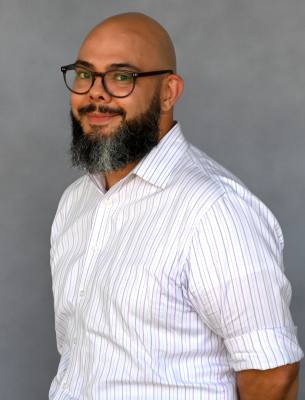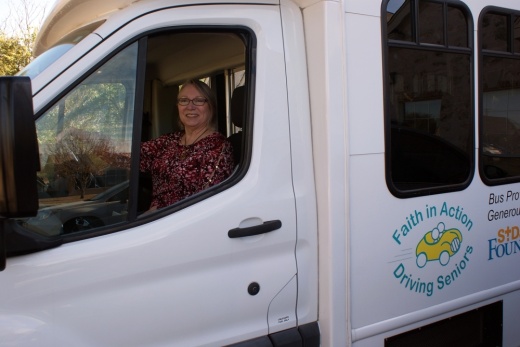For Executive Director Vickie Orcutt, who is in her sixth year with the group that started as the Georgetown Interfaith Caregivers in 2001, the focus of the group remains the same.
“The flagship of our services is transportation, and that’s through a volunteer model,” Orcutt said.
Over the last three years, the group has taken steps to significantly hone that model starting in 2018 when it added a 14-passenger van. The Go-Van-Go program helped expand Faith In Action’s work by allowing it to offer group outings—primarily for grocery shopping—which allowed it to complete 10,000 rides in a year for the first time. That uptick continued in 2019 with a record 13,612 rides.
“We brought on the van program to free up some of our volunteers because, on a given day, we’d have five to 10 volunteers at the grocery store,” Orcutt said. “The van program allowed us to do a group shopping event, and then those five or 10 volunteers would then be available to help with one-on-one rides to doctor’s appointments.”
However, once the pandemic hit, those numbers plummeted for both clients and volunteers. Where once Faith In Action could offer two rides a week to clients—a medical ride and one of the client’s choice—the program had to scale back what it could offer.
“With the slow re-engagement of our volunteers, we had to regroup and focus on medical rides initially,” Orcutt said. “But as more destinations opened up, we made it a ride of the senior’s choice.”
Then, as the peak of the pandemic waned, Faith In Action was able to reintroduce its van program—with a paid driver making eight trips a week to H-E-B and Walmart—which in turn freed up volunteers just as it had when it was launched.
“We’re still in a growth pattern,” Orcutt explained. “Some folks are still not [ready], but there are other people who definitely have that need still. The requests for service hasn’t slowed down, it’s just the return for some folks has been a little slow.”
While rides slowed in the midst of the pandemic, Faith In Action pivoted to provide another service to its clients with its Buddy Program, in which volunteers commit to make phone calls to check-in and chat.
“It has tapered,” Orcutt said, “We know it’s beneficial because 60% of our seniors that we serve live alone, and social isolation is a detriment to us all. But if you think of someone who is a senior, who has limited accessibility of getting out into the community to begin with, having that phone call can be a lifesaver. So, at this point, I don’t see it going away.”In addition, Faith In Action also offers a medical supply closet that is open to all Georgetown residents, regardless of age, and could include durable, donated items like wheelchairs, walkers, bedside commodes, canes, crutches and shower stools.





